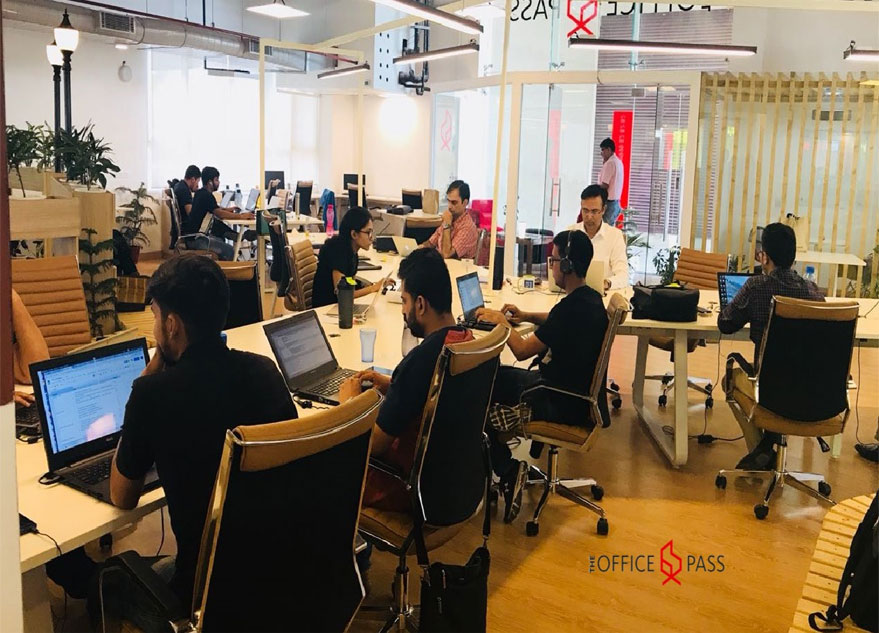The main role of HR is to improve employee performance to enhance the overall function of the company and achieve more. Effective communication is crucial for HR to unite the workforce during times of change or when introducing new initiatives. Here’s how HR can effectively communicate changes and initiatives:
💡 Are you looking for Coworking space in Gurgaon, Noida or Delhi? We are just a call away.
Call Now: 08999 828282
11 Tips on How to Improve HR Communication in the Workplace
- Be Transparent
- Tailor Messages
- Use Multiple Channels
- Provide Context
- Encourage Two-Way Communication
- Address Concerns Proactively
- Highlight Benefits and Opportunities
- Provide Resources and Support
- Celebrate Milestones and Successes
- Follow Up Regularly
- Lead by Example

1. Be Transparent
The HR of a company is responsible for communicating openly and honestly about the changes or initiatives, including the reasons behind them, potential impacts, and what employees can expect moving forward. Transparency builds trust and reduces uncertainty.
2. Tailor Messages
HR is responsible for recognizing that different segments of the workforce may have unique concerns or perspectives. Tailor messages address the specific needs and interests of different employee groups, such as frontline workers, remote employees, or managers.
3. Use Multiple Channels
HR should utilize a variety of communication channels to reach out to employees effectively. This includes email, intranet announcements, team meetings, town halls, video messages, newsletters, and social media platforms. Ensure consistency across all channels to avoid confusion.
4. Provide Context
HR is responsible for helping employees understand how the changes or initiatives align with the organization’s goals, values, and long-term vision. Providing context supports employees to see the bigger picture and feel more engaged in the process.
5. Encourage Two-Way Communication
HR is also responsible for creating opportunities for employees to ask questions, share feedback, and express concerns. Encourage open dialogue through Q&A sessions, feedback surveys, suggestion boxes, or dedicated communication channels where employees can voice their opinions.
Also Read: 10 Best Tips to Hire the Right People for Your Business
6. Address Concerns Proactively
HR is likely to anticipate potential questions or concerns that employees may have and address them proactively in their communications. They should be prepared to provide clear, honest answers and reassurance where needed.
7. Highlight Benefits and Opportunities
The HR of a company is expected to emphasize the positive aspects of the changes or initiatives, such as opportunities for growth, skill development, or improved work processes. Highlighting the benefits helps employees see the value in the changes and fosters buy-in.
8. Provide Resources and Support
HR is also responsible for the resources, training, or support that employees need to adapt to the changes or navigate the new initiatives successfully. This may include training programs, job aids, mentorship opportunities, or access to support networks.
💡 SMBs looking for HR, Marketing, Technology and Funding solutions for their business.
Call Hello Jarvis 994 8000 800
9. Celebrate Milestones and Successes
They should acknowledge and celebrate milestones or successes of employees to keep their morale high and maintain momentum. Recognize employees’ contributions and achievements related to the changes or initiatives.
10. Follow Up Regularly
HR is the key person who keeps employees informed about progress, updates, and any adjustments to the plans. They maintain regular communication channels to ensure that employees feel informed and involved throughout the process.
11. Lead by Example
HR leaders and managers are expected to exemplify effective communication practices by actively listening to employees, being accessible and approachable, and demonstrating empathy and understanding.
To sum up, by implementing these communication strategies, HR can effectively unite the workforce and foster a culture of openness, collaboration, and resilience during times of change or when introducing new initiatives.
The Office Pass (TOP) co-working spaces available in Delhi and NCR serve your purpose and help you leave a smart first impression on your clients. TOP offers all the facilities under one roof and at cost-effective prices that businesses look for to run a successful company. Contact us for more details at 08999 828282.
FREQUENTLY ASKED QUESTIONS (FAQS):
Question: Why is effective communication important during times of change or when introducing new initiatives?
Answer: Effective communication helps employees understand the reasons behind the changes, reduces uncertainty, builds trust, and fosters engagement and buy-in from the workforce.
Question: What are some common challenges HR may face when communicating changes or initiatives?
Answer: Common challenges include;
- Resistance to change
- Miscommunication
- Lack of clarity
- Fear of the unknown, and
- Differing levels of understanding among employees
Question: How can HR ensure transparency when communicating changes?
Answer: HR can ensure transparency by providing clear, honest information about the changes, including the reasons behind them, potential impacts, and what employees can expect moving forward.
Question: What are some effective communication channels HR can use to reach employees?
Answer: Effective communication channels include email, intranet announcements, team meetings, town halls, video messages, newsletters, social media platforms, and one-on-one discussions.
Question: How can HR tailor messages to different employee groups?
Answer: HR can tailor messages by considering the specific needs, concerns, and perspectives of different employee groups, such as frontline workers, remote employees, or managers.
Question: What strategies can HR use to encourage two-way communication with employees?
Answer: HR can encourage two-way communication in various ways such as;
- Creating opportunities for employees to ask questions
- Share feedback
- Express concerns through Q&A sessions
- Feedback surveys
- Suggestion boxes, and
- Dedicated communication channels
Question: How can HR address employees’ concerns proactively?
Answer: HR can anticipate potential questions or concerns and address them proactively in their communications by providing clear, honest answers and reassurance where needed.
Question: What are some ways HR can highlight the benefits and opportunities of the changes or initiatives?
Answer: HR can emphasize the positive aspects of the changes like:
- Opportunities for growth
- Skill development
- Improved work processes
- Help employees see the value and benefits
Question: How can HR celebrate milestones and successes related to the changes or initiatives?
Answer: HR can acknowledge and celebrate milestones or successes by recognizing employees’ contributions and achievements, which helps maintain morale and momentum.
Question: What role do HR leaders and managers play in effective communication during times of change?
Answer: HR leaders and managers play a crucial role in exemplifying effective communication practices, such as active listening, accessibility, empathy, and understanding, to inspire trust and confidence among employees.



